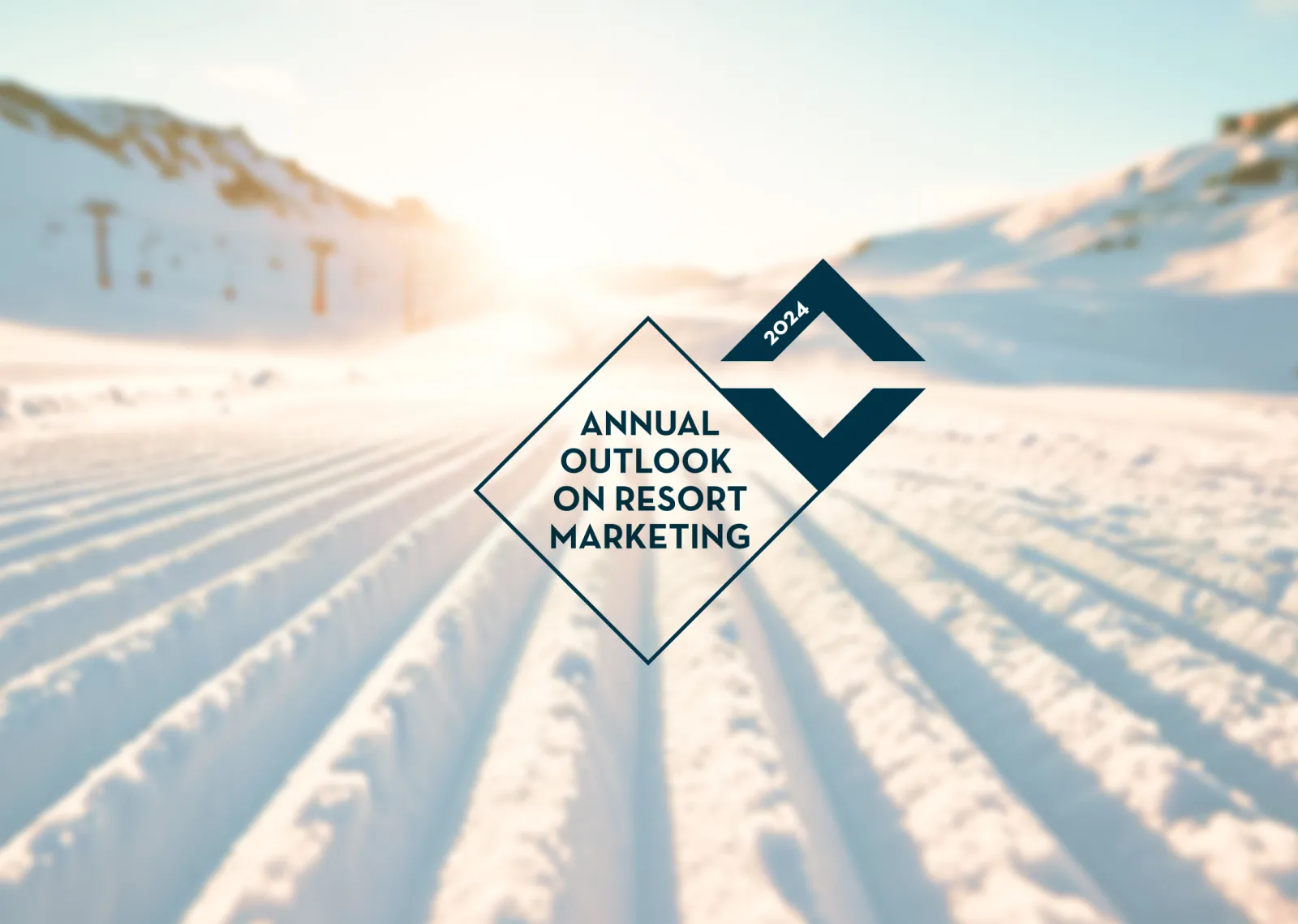Is your business doing social good?
In our brand and campaign development work over the last few years, we've been challenging our clients to really take a stand, to do more than push key messages, to define and articulate what they believe in and to think about their business' role in the bigger picture world. We've seen some amazing leaps in the outdoor industry with brands taking a stand and doing good, voicing their beliefs, their values, their reason for being, and even creating movements of social change. Beyond the obvious Patagonia and REI (opt outside) examples, we've also seen our client Taos Ski Valley become the first resort to be B-Corp certified. However, we often come across questions and hesitation. In response to this, we asked Russ Stoddard, author of the book Rise Up: How to Build a Socially Conscious Business (and long-time friend) for his advice.
Russ's book states that "a new breed of socially conscious companies is changing how consumers shop, where employees work, and the way in which the world does business". His book sets the stage for this optimistic business trend where companies create financial profit for stakeholders through products, services, and business models that create social impact and public benefit.
With more than 25 years of experience running a Certified B Corporation (earned by meeting rigorous standards of social and environmental performance, accountability, and transparency) that has always had social responsibility at its core, Russ Stoddard offers insights and guidance on how to create a socially conscious business, as well as encouraging words for social entrepreneurs of every generation.
Origin: What are some of the specific ways that corporations can create social impact?
Russ: There are so many ways to do this, but I generally like to say that it starts at home, and in the case of a business, “home” is the workplace. You can have the most direct social impact in your community by creating a healthy and equitable workplace with benefits and policies that truly value your employees as human capital. Other ways would be to use the influence of your brand on issues, whether that’s protection for wild places or providing shelter and opportunity for the homeless. Shift some of your cash donations to actual volunteering, on company time or in the community. Go out and rebuild a trail or sort vegetables at a food bank- let nonprofits use your conference room. As I said, there are so many ways to use the power of business to create social impact.
Origin: How do you suggest brands who are not currently "socially conscious" get started?
Russ: First, you have to understand that if you don’t want to come across as an imposter or poser to your stakeholders, you have to integrate [social consciousness] at the core of your company. So dig deep and gain knowledge about what this means to you and your business. There are likely role models in your own community (or industry) who are already doing it and you can learn from them. The certified B Corporation community of companies who use business to solve environmental and social issues is also a good resource. Make certain you, your co-owners, senior leadership, and your board all understand the commitment this entails.
Next, assess the current state of your company’s social impact. You’re likely already doing some good things that you can build on, and you’ll find areas for significant improvement as well. This gives you the data you’ll need to put together a plan to incorporate social purpose into your company. You’ll want to understand the numbers so that you can measure and report the social impact you’re creating.
From here, I’d likely recommend dusting off your mission statement. Review it and look at shifting it to a purpose statement—a proactive declaration for the change your company is committed to making in the world.
Think about focusing your social impact. I find that the United Nations Sustainable Development Goals are a helpful tool for understanding and categorizing the way you can create social impact. Check ‘em out.
And then it’s time to play Nike and “Just Do It.” Engage your employees and other stakeholders—customers, suppliers, and local government. Measure the changes you’re making and report your successes and your shortcomings. You’ll be surprised at how this sharpens your operation and gains you accolades from fans of your brand, which will grow as a result.
Engage your employees and other stakeholders—customers, suppliers, and local government. Measure the changes you’re making and report your successes and your shortcomings.
Origin: What do you say to those who are worried that taking a stand might alienate or turn off some of their customers?
Russ: I’ll reference the words of poet Gary Snyder here: “Find your place on the planet. Dig in, and take responsibility from there.” Corporate responsibility today requires getting off the sidelines, using your brand influence and resources for good, and thereby taking strong public stands. I actually think the risk is in NOT taking public stands. People aren't attracted to “weak sauce” brands and younger generations expect companies to publicly advocate on behalf of critical issues. Sure, it requires some cojones to go public, and there will be some blowback, but you can’t please everyone if you want to move the customer relationship from transactional to relational. Customers will reward you for your actions with their loyalty, purchasing, and vocal endorsement. If you need any encouragement, recent research and thought leadership increasingly supports this; from social activism as a leading driver of brand strength to Brand Activism as a CEO Imperative.
Origin: From your experience, can companies leverage their social good without boasting about it? What’s the best way of sharing this story in your marketing without boasting about it?
Russ: Nobody wants to be seen as a chest-thumping, self-promoting douche (shade thrown). The thing to keep in mind here is that actions speak louder than words, so go out there in the world and take action and report on it. Be plainspoken in the way you talk about it, and others will rally to tell your story for you- customers, employees, neighbors, and suppliers. There’s always more power and fervor when others sing your praises. I think you’ll be surprised how receptive the marketplace will be to your story of true social impact.
Origin: Can you give us some examples of clients you've helped and what type of ROI they are seeing?
Russ: First off, you’re looking for a different type of ROI—one that includes financial profit along with social and environmental profit. As to an operational ROI, I’ll answer this question by using our company, Oliver Russell, as an example. We’re a certified B Corporation. We are incorporated as a legal Public Benefit Corporation. Our purpose is to improve the lives of all we touch through meaningful work and the power of social enterprise. We target clients who have a product, service, or business model that intentionally benefits society. We advocate and take leadership publicly on issues. We create and publically report our social impact. And you know what? Clients come to us. We rarely go through an RFP process anymore. Clients find us through referral, search, and in response to our thought leadership. They come to us because of the quality of work we deliver, the minimum barrier to entry, but more importantly, because of the company we are. From a small city like Boise, we work with clients from Silicon Valley to Singapore to the Smithsonian. So beyond the good we’re creating in the world, I’d definitely call that a return on investment.
Our purpose is to improve the lives of all we touch through meaningful work and the power of social enterprise.






